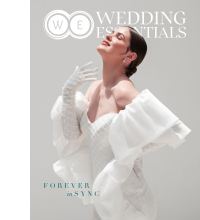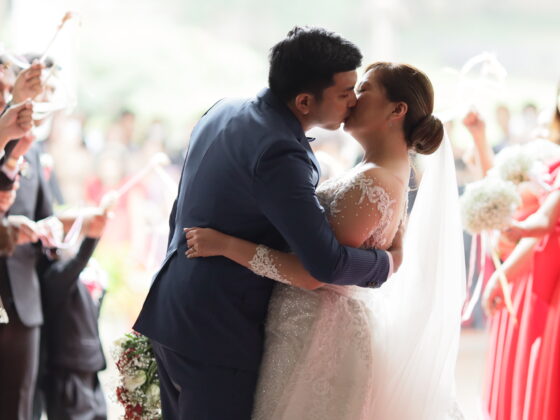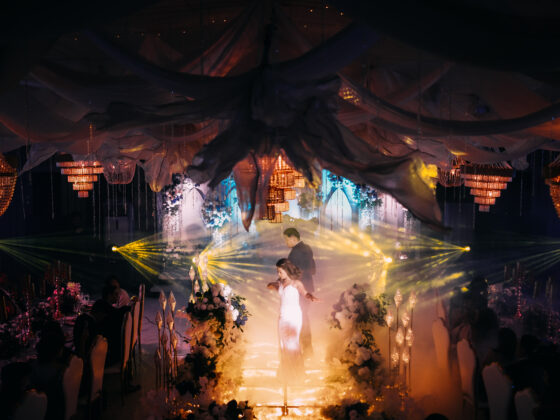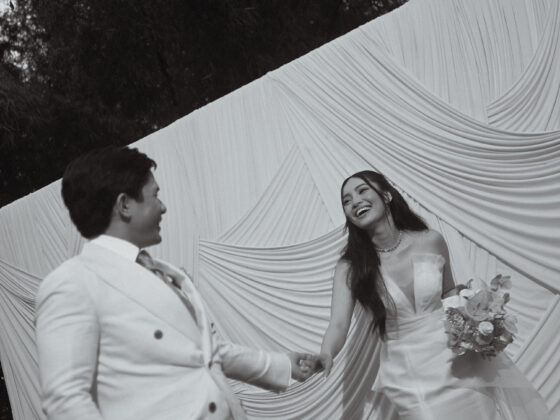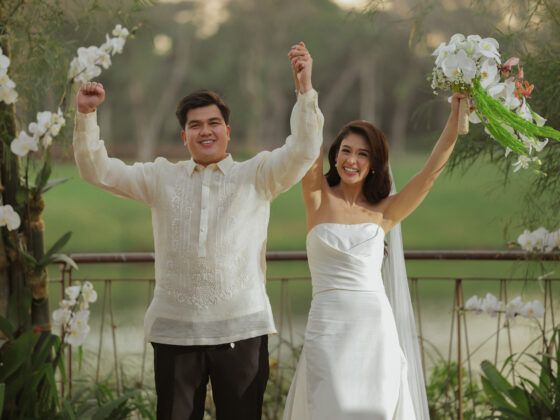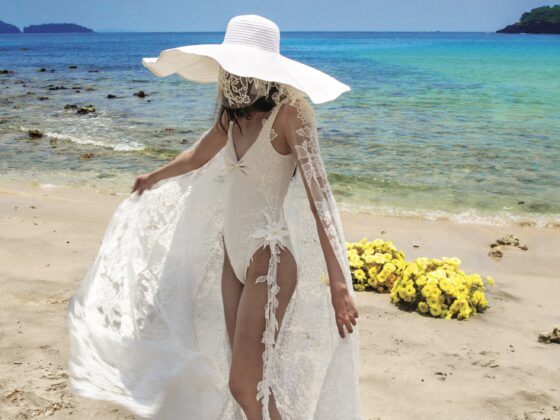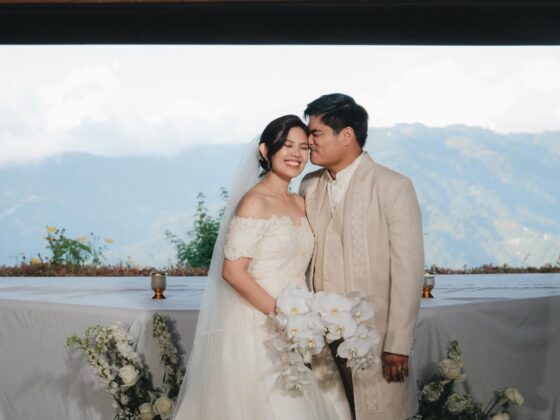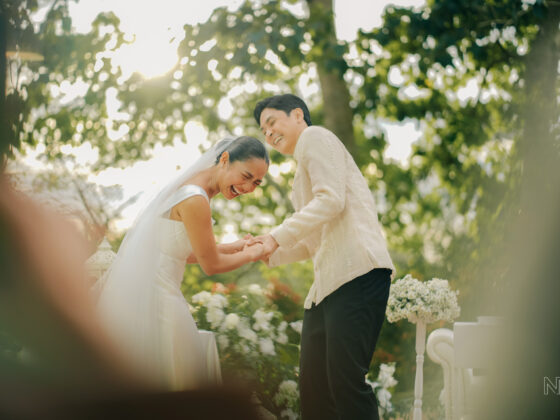Chinese culture is rich in traditions and beliefs, many associated with good luck and prosperity. Like many other cultures with deep respect for their practices, Chinese people follow customs that they believe bring good fortune.

Photo from @dmetroman on Instagram
Have you ever wondered where the red envelope (or Ang Pao)—the money packet commonly used during festive occasions such as Christmas and New Year’s came from? Well, this tradition is rooted all the way from China. Whether it’s Chinese New Year or a Chinese wedding celebration, it’s important to understand these “lucky” customs when planning a Chinese wedding, like a Tinghun or other wedding ceremonies. To help you get familiar with these beliefs, here are some Chinese wedding traditions that you’ll find interesting!
Double Happiness symbol
The Double Happiness symbol (囍), pronounced shuāngxǐ in Chinese, is believed to bring double joy and happiness to newlyweds as they begin their married life. This iconic symbol is traditionally incorporated into wedding decorations, invitations, souvenirs, and accessories (even in food). It is often seen in red and gold, as these colors are considered lucky in Chinese culture, representing good fortune and happiness.
The story of the red envelope
The red envelope (also called Ang Pao or Hong Bao) has long been a symbol of good luck and blessings in Chinese culture. It traces its origins to an ancient story that continues to be honored in today’s time. Traditionally, parents give red envelopes to their children during Chinese New Year’s Eve to elude the demon and keep children safe and awake through the night. This custom is not limited to New Year’s celebrations; it is also practiced during special occasions such as weddings, symbolizing luck, prosperity, and blessings. There are specific traditions related to the red envelope at weddings, such as varying amounts of money depending on the giver’s relationship with the couple. For instance, avoid giving amounts like 40 or 400 yuan, as the number 4 sounds like the word “death” in Chinese.
Red and gold as lucky colors
In Chinese culture, red and gold are considered lucky colors. These colors are believed to bring happiness and good fortune to a couple’s married life. According to Chinese philosophy, red is associated with an earth element, fire. It embodies energy, confidence, and good luck, attracting prosperity and positive energy. In Chinese weddings, red and gold are often used in wedding attire, decorations, and other elements to invoke good fortune and happiness.
An Chuang or preparation of the matrimonial bed
An Chuang is another important lucky tradition in Chinese weddings. It involves the preparation of the couple’s matrimonial bed, which is done on a propitious date, usually a few days before the wedding. The tradition calls for a female relative who is considered fortunate, typically one who is married with children and grandchildren to carry out this ritual. The bed will be dressed in red linens, and decorative items such as nuts and dried fruits on it as symbols of good luck. The An Chuang ceremony is believed to bring the couple long-lasting love, fertility, harmony, and well-wishes.
Hair combing tradition
The hair-combing ceremony is another significant Chinese wedding tradition, symbolizing the couple’s transition from youth to adulthood. The ritual typically involves an “auspicious lady” often the eldest female relative from the groom’s side. In some families, the bride and groom’s parents perform the ceremony themselves. During the ritual, the couple’s hair is combed four times while reciting an ancient Chinese blessing:
一梳梳到尾,
(May your marriage last a lifetime)
二梳百年好合,
(May you be blessed with a happy and harmonious marriage until old age)
三梳子孙满堂,
(May you be blessed with an abundance of children and grandchildren)
四梳白发齐眉。
(May you be blessed with longevity)
At the end of the ritual, the couple will eat a sticky glutinous rice in a bowl as a symbol of strong union or togetherness.
There are numerous Chinese wedding customs that are believed to be “lucky” — and each of these traditions holds deep significance in their rich culture, roots, and values. Isn’t it interesting to learn about the beliefs of different people? Happy Chinese New Year from all of us at Wedding Essentials!
